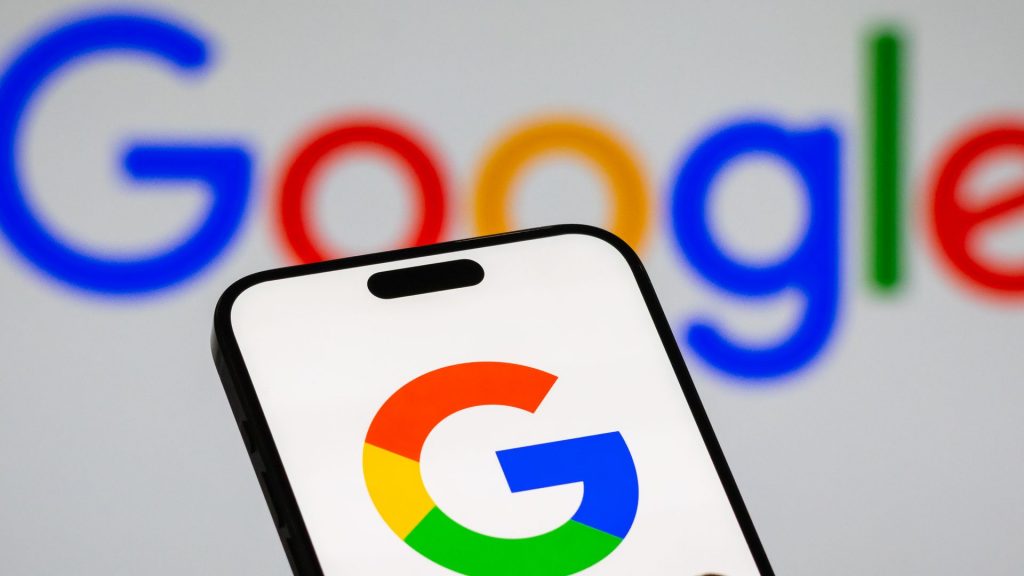Google described as national security threat, watchdog wants it broken up
Ella Greene April 24, 2025 0
A technology watchdog group called on Congress to take action against Google, which it describes as a monopoly and national security threat. The Tech Oversight Project asked lawmakers to help break up Google with what it describes as pro-competition and comprehensive privacy legislation, in addition to increased antitrust efforts.
“Congress can put its thumb on the scale to put the U.S. economy back in the driver’s seat,” Tech Oversight’s Executive Director Sacha Haworth said in a memo obtained by Punchbowl News.
Haworth wrote that Google’s business practices are illegal and undermine the U.S. economy, particularly in AI. Haworth stated Google’s business ties to the Chinese Communist Party are deep and deserve closer scrutiny.
“Competitive markets produce scrappy, agile winners,” Haworth wrote. “Monopoly markets produce bloated companies that no longer need to be innovative; they only need to be unavoidable.”
What is Google doing to advance AI?
Haworth pointed to DeepSeek’s rapid advances in the AI space and said it’s an example of how a tech giant like Google can be surpassed relatively quickly when it fails to innovate. Google’s Gemini model is “falling behind,” according to Haworth, despite the extraordinary sums of cash the company has to invest in critical technologies.
Google also has the computing power and data capacity needed to lead in the AI space, Haworth argued, but it’s not on the forefront because they have had years of “unchecked power.”
“Google fell asleep at the wheel instead of pioneering new pathbreaking innovations and breakthrough technologies,” Haworth said. “They broke the law, and Google does not deserve special protections under the guise of vague national security threats they’ve made for decades.”
Google announced it will invest $75 billion into AI infrastructure in 2025.
CEO Sundar Pichai said it will be the foundation for future growth. He stated their latest AI model, Gemini 2.0, made dramatic progress. There are now 4.4 million developers building with it.
American companies are pouring in billions to stay ahead of China as it tries to close the gap in capability. Microsoft also announced an $80 billion investment in AI.
DeepSeek, owned and operated by a Chinese company, caught everyone’s attention when it appeared to make similar innovations to ChatGPT at a fraction of the cost. However, investigators discovered that it was likely done by stealing from ChatGPT’s open-sourced abilities to cut down on research and development costs.
What’s the status of Google’s antitrust case?
A U.S. District Court ruled in April that Google violated antitrust law by monopolizing open-web digital advertising markets. In its lawsuit, the Justice Department said Google subverted competition through acquisitions and auction manipulation.
There are ongoing hearings regarding punishment and remedies.
Google suggested allowing web browsers like Safari and Mozilla to enter into multiple default agreements over different platforms, so Google could be the default search engine on one device, like an iPhone, but there could be another default search engine on an iPad.
Google said this would allow device makers to preload multiple search engines on their devices and also let them to load other Google apps without first having to load search or Chrome.
The DOJ wants Google to divest its search engine Chrome and end exclusive search engine agreements with phone makers like Apple and Samsung.
Google said it will appeal regardless of the punishment and remedies imposed.
Ella Rae Greene, Editor In Chief
Ella Greene
Ella and the staff at Clear Media Project (CMP) curate these articles.
Unless otherwise noted CMP does not write these articles.
The views, thoughts, and opinions expressed in the articles published on this blog belong solely to the original authors and do not necessarily reflect the views of the blog owner. The blog owner does not claim ownership of the content shared by contributors and is not responsible for any inaccuracies, errors, or omissions.
All rights and credits goes to its rightful owners. No Copyright Infringement is intended. If you believe any content infringes on your rights, please contact us for review and potential removal.





